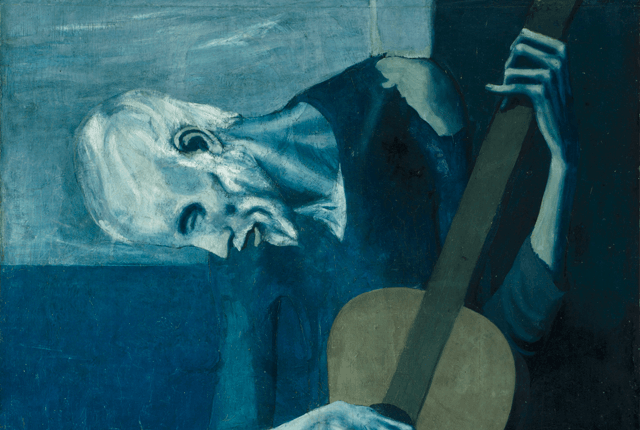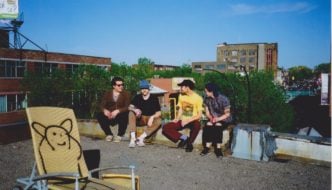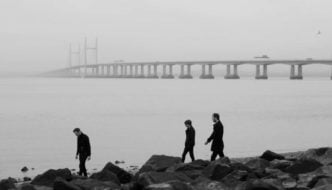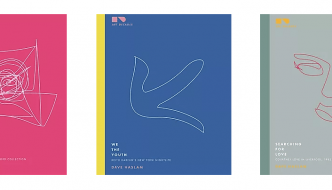Guitar Heroes: An Evening With Birmingham Conservatoire
April 29, 2016

Classical guitar has an image problem. The studious guitarist, footrest in tow, occupies a curious hinterland between symphonic mainstay and popular music icon. As rock, blues and jazz kept the guitar centre-stage throughout the 20th Century, a parallel story of experimentation and achievement exists within the more traditional confines of classical composition and chamber music. The inherent character of the guitar however, its fragility, passion and nuance, bridges this musical divide and represents a wellspring of textural inspiration for composers around the world.
Formally constituted in 1886, Birmingham Conservatoire forms part of the city’s fecund musical landscape. With links to Birmingham Symphony Orchestra, the Conservatoire is a hub for aspiring musicians from around the globe who compete in a rigorous audition process to gain entry into degree programmes. A regular schedule of live concerts enable students to hone their craft in front of a live audience and these recitals offer a glimpse into the world of these young musicians, developing their chops and perhaps more directly the art of performance and conveying emotion.
On a drizzly Thursday evening one such chamber concert, under directors Mark Ashford and Mark Eden, featured a diverse programme of Baroque, Romantic and Modern/Contemporary pieces. Bach’s Partita No.3 BWV 1006 performed by Rowan McConkey served as a suitable jumping-off point for the concert, with Bach’s lute suites almost reaching “Stairway to Heaven” status as overanalysed and ubiquitous. Fierce debates continue over embellishments and tempo but all the same, we can see within this piece the template for modern guitar performance established.
Next up, student Juan Pablo Honorato Brugere offered up a “potpourri of motifs” (his own words) from Mauro Guiliani’s Rossiniana. Strident and wrought with emotion, these operatic translations cast the guitar as both tenor and soprano, with rich, tumbling arpeggios mirroring the rapid pronunciation of operatic lyricism. A strong Mediterranean thread is picked out within this performance which also carries across most of the evening. Spanish, Moorish, Italian and later Latin American influences dictate the texture and character of the classical guitar’s voicings and utilisations. This is the melodic language of languid afternoons, the tinge of heartache, of words left unsaid. Reverie juxtaposed with a deep sense of mournful longing, harkening back to the traditions of the Occitan and Provencal troubadours. Tárrega’s Capricho Arabe (masterfully performed by the legendary Segovia below) typifies this rich vein of cross-cultural influence and was suitably evoked by Avraam Kontos at the recital.
Reaching more experimental climes, the recital also featured a gripping performance of Cuban composer and guitarist Leo Brouwer’s Sonata i. Fandangos y Boleros (1990) by student Berx Kockaya. Raised to recite Tárrega and Granados by ear, Brouwer embraced these traditions and helped to usher in a new interpretive era in “Classical” (by this point an increasingly dubious label) guitar. Brouwer’s pieces reflect the uncertainty and clashing impulses of the modern condition; thought-provoking and rich, his work inspires a divisive reaction amongst fans of Classical music. Challenging and forceful, Fandangos y Boleros places the guitar at the intersection of multiple influences and critical approaches to contemporary music. Jackknifed into a melodic passage is the opening phrase from Beethoven’s Pastoral Symphony, part of a clashing musical jigsaw.
Concluding the evening in rousing style, the Minack Quartet, formed of Conservatoire students Alex Roche, Myles Payne, Martin Johansson and Georgina Dadson, presented Frederico Moreno-Torroba’s Estampas, a bucolic suite of rural scenes, from Bailando Fandango Charro to Juegos Infantiles. The performers obviously relished the playful nature of this picaresque spread and it formed a fitting denouement to proceedings. All players are to be congratulated on an excellent display of talent and dedication across the programme.
As the Birmingham Conservatoire is amputated from Birmingham Central Library during its demolition, the Adrian Boult Hall is closing with a farewell series of concerts planned under the ‘City of Sounds’ moniker. Running from 1st May to 26th June, this festival looks forward to the relocation of the Conservatoire to Birmingham’s Eastside, which is undergoing significant investment and construction work over a decade in the making.
On Wednesday 18th May, Birmingham Conservatoire is hosting Frontiers – Guitar Works of Sabino de Bari featuring the Alma Quartet Guitar and de Bari on guitar. Ticket £4/£5 OTD.
Filed under: Music
Tagged with: Bach, Birmingham, Birmingham Conservatoire, Classical, guitar, music



Comments